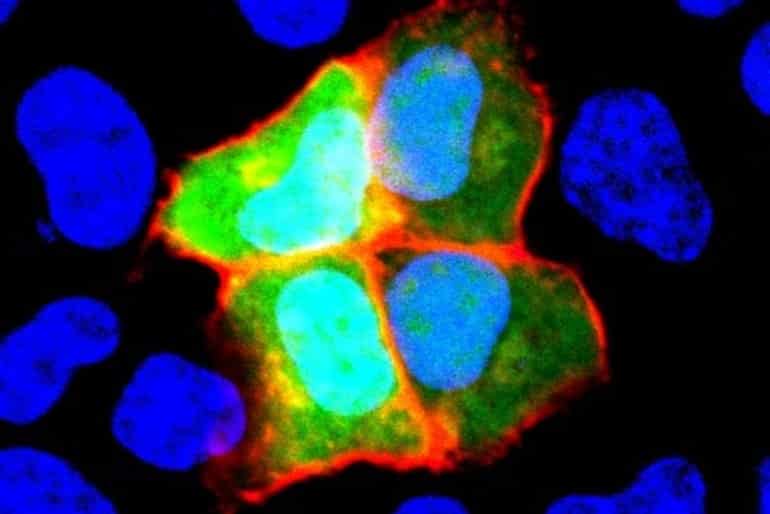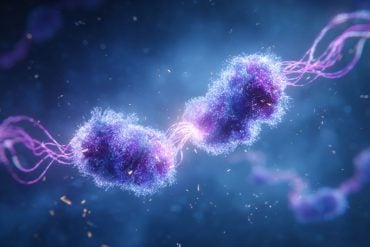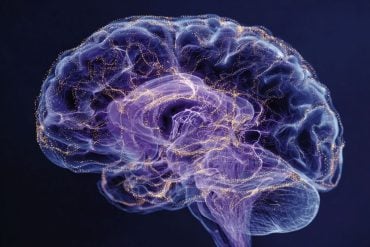Summary: Researchers have identified an autoantibody that appears to cause schizophrenia in some individuals. The findings add to the growing body of evidence that schizophrenia could have an autoimmune component.
Source: Tokyo Medical and Dental University
Schizophrenia is a disorder that affects how people act, think, and perceive reality. It is often very difficult to treat because it has many different causes and symptoms.
In a study published last month in Cell Reports Medicine, researchers from Tokyo Medical and Dental University (TMDU) have identified an autoantibody—a protein that is produced by the immune system to attach to a specific substance from the individual’s own body, rather than to a foreign substance like a virus or bacteria—in some patients with schizophrenia.
Notably, they also found that this autoantibody caused schizophrenia-like behaviors and changes in the brain when they injected it into mice.
When considering possible autoantibodies that might cause schizophrenia, the research team had a specific protein in mind. Previous research has suggested that neural cell adhesion molecule (NCAM1), which helps cells in the brain talk to one another via specialized connections known as synapses, may have a role in the development of schizophrenia.
“We decided to look for autoantibodies against NCAM1 in around 200 healthy controls and 200 patients with schizophrenia,” explains lead author of the study Hiroki Shiwaku.
“We only found these autoantibodies in 12 patients, suggesting that they may be associated with the disorder in just a small subset of schizophrenia cases.”
The research team didn’t stop there—they wanted to know whether these autoantibodies could cause any changes that commonly occur in schizophrenia, so they purified autoantibodies from some of the patients and injected them into the brains of mice.

“The results were impressive,” says Hidehiko Takahashi, senior author.
“Even though the mice only had these autoantibodies in their brains for a short time, they had changes in their behavior and synapses that were similar to what is seen in humans with schizophrenia.”
Specifically, mice with the patient autoantibodies had cognitive impairment and changes in their regulation of the startle reflex, which are both seen in other animal models of schizophrenia.
They also had fewer synapses and dendritic spines, which are structures that are important for the connections between brain cells, and are also affected in schizophrenia.
Given that schizophrenia can present very differently among patients and is often resistant to treatment, the results of this study are promising.
If schizophrenia is indeed caused by autoantibodies against NCAM1 in some patients, this will lead to important improvements in their diagnosis and treatment.
About this schizophrenia research news
Author: Hiroki Shiwaku
Source: Tokyo Medical and Dental University
Contact: Hiroki Shiwaku – Tokyo Medical and Dental University
Image: The image is credited to Department of Psychiatry and Behavioral Sciences, TMDU
Original Research: Open access.
“Autoantibodies against NCAM1 from patients with schizophrenia cause schizophrenia-related behavior and changes in synapses in mice” by Hidehiko Takahashi et al. Cell Reports Medicine
Abstract
Autoantibodies against NCAM1 from patients with schizophrenia cause schizophrenia-related behavior and changes in synapses in mice
Highlights
- Some patients with schizophrenia are positive for anti-NCAM1 autoantibodies
- Anti-NCAM1 antibody from schizophrenia patients inhibits NCAM1-NCAM1 interactions
- Anti-NCAM1 antibody from schizophrenia patients reduces spines and synapses in mice
- Anti-NCAM1 antibody from patients induces schizophrenia-related behavior in mice
Summary
From genetic and etiological studies, autoimmune mechanisms underlying schizophrenia are suspected; however, the details remain unclear.
In this study, we describe autoantibodies against neural cell adhesion molecule (NCAM1) in patients with schizophrenia (5.4%, cell-based assay; 6.7%, ELISA) in a Japanese cohort (n = 223). Anti-NCAM1 autoantibody disrupts both NCAM1-NCAM1 and NCAM1-glial cell line-derived neurotrophic factor (GDNF) interactions.
Furthermore, the anti-NCAM1 antibody purified from patients with schizophrenia interrupts NCAM1-Fyn interaction and inhibits phosphorylation of FAK, MEK1, and ERK1 when introduced into the cerebrospinal fluid of mice and also reduces the number of spines and synapses in frontal cortex.
In addition, it induces schizophrenia-related behavior in mice, including deficient pre-pulse inhibition and cognitive impairment. In conclusion, anti-NCAM1 autoantibodies in patients with schizophrenia cause schizophrenia-related behavior and changes in synapses in mice.
These antibodies may be a potential therapeutic target and serve as a biomarker to distinguish a small but treatable subgroup in heterogeneous patients with schizophrenia.







